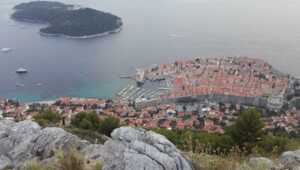
Few cities in the world can boast the title of once being a republic, having one of the most impressive merchant fleets with ships laden with precious goods arriving from the Mediterranean to even North America. Today, it's a city that everyone has heard of and knows roughly where it's located. Dubrovnik is one of those cities that attracts millions of tourists from all over the world, a harbour for large cruise ships, a favourite destination for romantic walks and weddings, as well as Game of Thrones enthusiasts, as it served as a filming location for the series. For most of the year, the city buzzes with tourists, drawing sighs in front of its colossal walls and buildings that have stood the test of centuries, creating a unique atmosphere with a blend of stone, sea breeze, pine, and oleander scents.
A visitor to Dubrovnik will have plenty to hear and learn. There were events from the 15th and 16th centuries when this city-state was at the peak of its trade, cultural, scientific, and diplomatic power, with numerous ups and downs, wars, conspiracies, and even the "Great Quake" earthquake that in 1667 almost levelled everything human eyes could see within and outside the walls. Strong trade and diplomatic ties with the Ottoman Empire, Spain, and Italy brought great wealth, fame, and reputation to the people of Dubrovnik, but also countless conflicts with their competitive Venetian Republic. Trade spanned the globe, dealing in ores, grains, salt, meat, leather, tobacco, crafts, fine fabrics, and precious gems, requiring a powerful fleet of around 180 ships, making Dubrovnik's navy the third largest and most potent in the world of the 16th century.
In Dubrovnik, freedom was highly valued, as can be seen today on its coat of arms and flags featuring the protector St. Blaise and the inscription "Libertas," which in Latin precisely means Freedom. Since 1979, the city of Dubrovnik has been on UNESCO's list of World Heritage Sites as a remarkably preserved historic core of exceptional importance and a centre for the development of the Croatian language and literature, a city where numerous significant poets, playwrights, painters, mathematicians, physicists, and other scholars thrived.
Today, the streets, gardens, and villas of Dubrovnik's nobility are strolled by relaxed tourists armed with cameras, admiring the main street Stradun and the old harbour, wandering through narrow alleyways, peering through cannon openings in the city walls, shopping at Pile Gate - one of the three grand city gates with drawbridges. At night, they enjoy the bars and nightclubs, while their days are spent on the plentiful beaches.